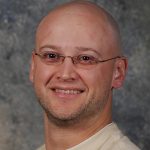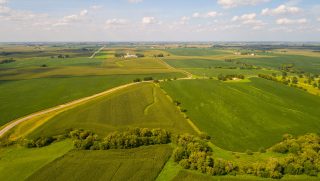Farmers often don’t have a problem reconciling science with faith — the sum being seen as greater than their individual parts
Who remembers the “clip show”? Episodes pieced together with excerpts from past shows: usually in a disjointed, retrospective format. Literally a patch job. Panned as creative disgraces, they were typical of the Hollywood cost-cutting mentality. Most damning of all, they didn’t add substantially to the rich narrative or character backstories that gave series their allure —
a contemptible regression in storytelling.
Now consider how those last points apply to the ongoing reality show (going centuries strong) known as farming.
A couple of years ago, I wrote a column examining the spiritual implications of GMOs in agriculture. What would that bearded, cloud surfing entity in a toga (aka “God”) think of our exploits?
The central thesis was that the golden rule (“Do unto others”) gives us a wide berth on the earthly plane. Leeway to leverage a constantly evolving body of scientific knowledge to better the human condition.
A recent repost of this column on social media inflamed passions. Some took exception to this religious infusion (intrusion?) into the sciences. Indeed, they argue that religion cheapens agriculture, business, and education (of course, tell that to faith-based organizations and parochial schools, but I digress). In their minds, this is the clip-show syndrome, an incompatible compilation that does nothing to meaningfully advance the story. The “story” in this case being quality of life, food security, and environmental stewardship. To them, religion is an antiquated crutch that simply spins in perpetuity, never inching forward. Nor can the cog teeth ever align and spin in unison with their science neighbor. Rather, they just grate, wear down — and bog down — meaningful pursuits with tacky doctrinal dogma, self-important dudes and dames in robes, and “imaginary friends” in the sky.
And then you have farmers, who straddle both sides of the religion/science field effortlessly.
Sure, there’s always the atheist and Neo-Luddite in the ranks, but you’d be hard pressed to find a vocation with 1) more professing members and 2) who outwardly embrace scientific advancements.
The ag day to day can often seem like a situational comedy. But all the possible miscues, missteps, and struggles builds resilience and satisfaction. Not one job I’ve had is as satisfying as planting the “back forty.”
Farmers understand that we’re charged with dominion over nature, a sacred compact between us and God [or Gaia, or your fellow wo(man), whatever your preference]! That obligation binds us to the land. As the frontline stewards, we have a certain reverence (admittedly, sometimes contempt when things go awry!) for creation. Especially when it comes to new crop varieties that bear little to no resemblance to the original template bestowed on us. I suppose you could say we frame ourselves as God’s contemporary architects by proxy. And in the case of precision breeding, who’s to say that DNA isn’t a dynamic scripture designed to be read and reinterpreted on the fly?
When I attend a religious service, I revel in ritualistic familiarity. That also spills over to my life as a scientist, with set methodologies and protocols. The desire to foment public good is a powerful motivator in all my personal and professional pursuits.
Indeed, every religion has their prophet — a model of selfless dedication to the betterment of humanity. But one doesn’t have to be divine in my view. Dr. Norman Borlaug, the Father of the Green Revolution, is perhaps the unheralded, universal prophet. And not so incidentally, a man of faith. He took the stance that man categorically cannot live on bread alone. His words during his 1970 Nobel Prize lecture (where he was recognized for his breeding and agronomic efforts that saved a billion individuals from starvation) are indicative of his legacy — a man who had no difficulties reconciling his faith with science.
“The recognition that hunger and social strife are linked is not new, for it is evidenced by the Old Testament passage, “… and it shall come to pass, that when they shall be hungry, they shall fret themselves, and curse their King and their God.
Then, by developing and applying the scientific and technological skills of the 20th century for “the well-being of mankind throughout the world”, he may still see Isaiah’s prophesies come true: “… And the desert shall rejoice, and blossom as the rose… And the parched ground shall become a pool, and the thirsty land springs of water …”
Aggies don’t claim a monopoly on faith, but there’s a certain synergy (and practical) magnetism with science. The sum total of the partnership is greater than the individual parts. We’re hardwired as spiritual creatures, but we also covet the latest hybrid, triple stacked biotech variety, or other advancement. Religion is the motivator, science the mechanism. As Dr. Borlaug exemplifies, we can be proud members of two overlapping and meaningful communities of practice.
Tim Durham’s family operates Deer Run Farm — a truck (vegetable) farm on Long Island, New York. As a columnist and agvocate, he counters heated rhetoric with sensible facts. Tim has a degree in plant medicine and is an Associate Professor at Ferrum College in Virginia.



